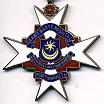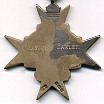|
Collecting Nursing History 4 A Nurse History - Marjorie Earley. Research - Ann Johnstone/Sue Barker. Text - Ann Johnstone/Wilf Burgess. |
  |
Please Note: Whilst every care is taken in checking promoted links, we cannot accept responsibility for your use of third party web links. | ||||||||||
|
|
||||||||||||
| Historical Note: The life of a probationer nurse in the late 20's early 30's was, in reality, one of serious hardship and sacrifice. Both of which followed, in most hospitals where training was available, a rigorous interview with the Matron. (It is believed that the Matron of St Mary's, Portsmouth, at the time was Miss Agnes Hutchinson (circa 1926 until at least 1935). A successful interview led to a position on a preliminary introductory course of two - three months theory and practice in a training school, at the end of which examinations would determine the future of the individual. Passing meant entering nurse training proper, failure usually meant the end... When one considers the privations of the successful one can but wonder that anyone would have wanted the job. Compulsory residence in a hospital nurses home, rooms around 8 by 10 feet, a bed, a chair, perhaps a table or desk and a small wardrobe hardly constituted the height of comfort. Ablutions were mere often than not communal. Long days work on wards - sometimes broken by attendance at lectures; set bedtimes; set rise times; perhaps one day off per week; all for around £2 per week. Linen, uniform and laundry were usually supplied free of charge - but shoes and books were prescribed and had to be purchased by the probationer. Matron's permission was usually needed to remain out of the residence overnight! Marriage was unlikely following such a lifestyle - and was in any case forbidden on pain of dismissal. Marriage ended nursing careers. A probationer did not have the right to resign her position - only to have her services terminated by the Matron. Privation indeed.... |
Years later, Marjorie was to tell her daughter
Ann that it was because she enjoyed
her training so much
that she could overcome the hardships. Marjorie told her that training then was rigorous
with ward cleaning an important task, with beds to be made perfectly,
‘hospital’ corners - and ‘open’ ends of pillowcases to lie away from the
ward doors. She complained that she was always hungry, and described one
incident when she was hidden in a cupboard with a bowl of rice pudding
to consume! It was also hard on the feet and she developed flat feet which
had to be treated. She demonstrated the exercises - which gripping a pencil with
her toes meant to help. Together with special arch supports these cured the problem.
Study time also had to be
found and Marjorie was most proud of her 4 volumes of Modern Professional
Nursing, published by Caxton, which she kept for many years after they had
served her well during her training. She lived in
the Nurses home (living-in was compulsory in many hospitals at the time).
Nurses Homes at the time were not luxuries either - the majority were
ruled by a home sister, who was not only responsible for their welfare,
but often lived there herself - able to ensure that her charges led
chaste lives - and that they were always on duty when they should
have been! Such homes were locked at night and the majority of residents
did not have keys. Marjorie's training covered most aspects of nursing, theatre work, and going out with ambulances. (*Photo of her with
ambulance of the day). She later related that she saw a great deal of poverty and hardship
on
 these visits to the community. There was quite a bit of laughter,
however, to lighten the sombre side of training - with the doctors teasing the young
nurses, and the inevitable harmless mistakes made causing much hilarity.
The mixing of patient dentures was a source of such hilarity in many
hospitals, when, taken for cleaning, the less thoughtful nurse would
place all, collected from different patients, in the same bowl without
knowing which belonged to whom - or even which tops and bottoms made a
set! But that training was taken very seriously by everyone concerned can be
seen by the well known visit to Matrons office - well known by every
trainee up until the 1970's - to explain a broken clinical thermometer,
and perhaps have the cost deducted from pay!
these visits to the community. There was quite a bit of laughter,
however, to lighten the sombre side of training - with the doctors teasing the young
nurses, and the inevitable harmless mistakes made causing much hilarity.
The mixing of patient dentures was a source of such hilarity in many
hospitals, when, taken for cleaning, the less thoughtful nurse would
place all, collected from different patients, in the same bowl without
knowing which belonged to whom - or even which tops and bottoms made a
set! But that training was taken very seriously by everyone concerned can be
seen by the well known visit to Matrons office - well known by every
trainee up until the 1970's - to explain a broken clinical thermometer,
and perhaps have the cost deducted from pay!
In February 1932
Marjorie took her Preliminary Examinations - there were usually two sets
of examinations - those set by the hospital and those set by the General
Nursing Council - in Marjorie's case the GNC for England & Wales. She
must have passed the hospital examinations, although there is no
existing record of these. She was informed that she had passed the state
preliminary exams a
month later by the GNC.
She must have met the high standards required in nursing practice -
constant supervision by qualified staff - particularly Ward
Sisters, was known to be very strict, and there were regular reports to
the hospital Matron, every one of which would be discussed by her with
each probationer before they were allowed to continue with training.
Failure here more often than not meant dismissal. In October 1933 Marjorie
sat and passed her final examinations - which again would have been both
hospital and State. In November 1933 she was informed that she had passed her
State Finals and that her name had been approved by the Council for
entry into the State Register for Nurses.
| The state preliminary examinations at this time would have consisted of a written paper on various aspects of nursing care and later a practical examination during which, for example, trays and trolleys would have to be set, together often with a demonstration of some aspect of practical care of a real patient. Plus an oral examination in which one or more examiners would ask related questions. The oral examiners were often senior staff from other hospitals. The state final examinations at that time followed the same format. It is worth noting that many hospitals also set their own examinations - along the same lines, at the end of the first and third years of training. |
She developed
her career and sphere of special interest by successfully undertaking Midwifery training,
a not uncommon career path for SRN qualified Nurses.
The first child
recorded in her Pupil Midwives Case Book is a baby boy born 13th
December 1934 - and the last case, (*almost) was a baby girl born1st July
1935. One
wonders what sort of life these children had?
 Marjorie’s
name was entered on the Midwives Roll August of the same year. She was
most proud of delivering 100 babies in her career and had photos taken
of her with her
‘jubilee’baby.
*In actual fact the final birth recorded in her Case
Book is that of her daughter some years later! A decade, a war, and
3000miles away in Alexandria, Egypt.
Marjorie’s
name was entered on the Midwives Roll August of the same year. She was
most proud of delivering 100 babies in her career and had photos taken
of her with her
‘jubilee’baby.
*In actual fact the final birth recorded in her Case
Book is that of her daughter some years later! A decade, a war, and
3000miles away in Alexandria, Egypt.
| Midwifery was not and still is not regarded as branch of nursing in the United Kingdom - especially by it's practioners. It is regarded as a specialty in it's own right, whose qualified practitioners have the right to practice without supervision*, and to prescribe and administer certain medications on their own authority. They do of course, have a duty to refer a patient to a medical practitioner should this be necessary. *In reality almost all pregnancies have been diagnosed by a doctor and referred to a midwife by one for follow up and delivery. All complications should result in Medical intervention. |
| Back | START | Next |
LINKS.
SECTION 1
Schools of Nursing.
SECTION 2
nursingbadges
historyofhospitals
SECTION 3
Nursing Organizations
Statutory Bodies.
Nursing & Midwifery Council.
Professional/Trade Unions.
Royal College of Nursing.
